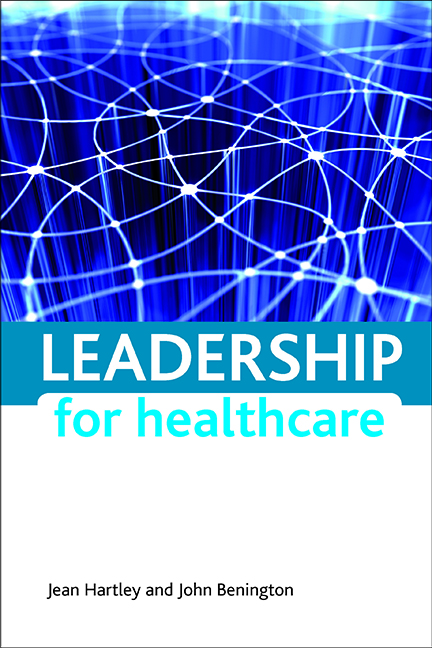Book contents
- Frontmatter
- Contents
- List of tables and figures
- Acknowledgements
- Chapter 1 Introducing leadership
- Chapter 2 Leadership concepts
- Chapter 3 Characteristics of leadership
- Chapter 4 The contexts of leadership
- Chapter 5 The challenges of leadership
- Chapter 6 The capabilities of leadership
- Chapter 7 Consequences of leadership
- Chapter 8 Leadership development
- Chapter 9 Conclusions
- References
- Index
Chapter 8 - Leadership development
Published online by Cambridge University Press: 01 September 2022
- Frontmatter
- Contents
- List of tables and figures
- Acknowledgements
- Chapter 1 Introducing leadership
- Chapter 2 Leadership concepts
- Chapter 3 Characteristics of leadership
- Chapter 4 The contexts of leadership
- Chapter 5 The challenges of leadership
- Chapter 6 The capabilities of leadership
- Chapter 7 Consequences of leadership
- Chapter 8 Leadership development
- Chapter 9 Conclusions
- References
- Index
Summary
In this chapter:
The implications of this review for how leaders and leadership are developed are examined. We return to the ‘Warwick Six C Leadership Framework’ and use each of the elements to inform thinking and practice about leadership development, drawing on the previous chapters on concepts, characteristics, contexts, challenges, capabilities and consequences and using these to critically think about, design and evaluate leadership development practices. The chapter defines leadership development and presents a framework for comparing how far leadership development is focused on individuals and how far it is focused on teams, groups or organisational capacity. The framework also presents a continuum from intentional development (for example, education and training programmes, mentoring) and emergent development (for example, job challenges and hardships). The implications for selecting staff for leadership development opportunities, for designing leadership development, and for evaluating leadership development are explored.
The Six C analytical framework, presented at the beginning of this book, is now used to examine leadership development. Figure 8.1 shows the same structure of elements of leadership but with leadership development rather than leadership in the centre of the figure. In other words, the Warwick framework is used to reflect on how the understanding of leadership affects thinking and practice in relation to leadership development. Leadership development is a large area in itself, deserving greater space than a single chapter (for example, Hartley and Hinksman, 2003; McCauley and van Elsor, 2004; Mabey and Finch-Lees, 2008; Gold et al, 2010). The focus here is limited to particular implications of the framework for selecting staff for leadership development, the design of leadership development and the evaluation of leadership development.
This book has reviewed some key literature about leadership – what, then, are the implications for leadership development? Research (for example, Alimo-Metcalfe and Lawler, 2001) shows that leadership development is often embarked on with insufficient attention to the implicit or explicit model of leadership that is being used, and without attention to the evidence about ‘what works’ in leadership development. There is sometimes an implicit belief that leadership development is ‘a good thing’, without clear objectives and without clear planning to ensure that it fits with the strategic direction and priorities of the organisation, or that it is supporting relevant skills and values, that it is efficient and effective in resource terms, and contributes not only to individual development but also to organisational change and improvement.
- Type
- Chapter
- Information
- Leadership for Healthcare , pp. 111 - 126Publisher: Bristol University PressPrint publication year: 2010



